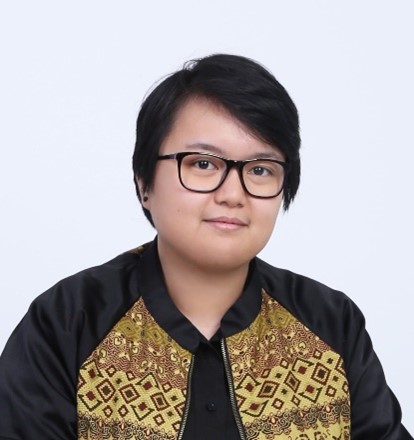The Impact of English Language Dominance in Music Therapy Learning Resources on Indonesian Music Therapy Students’ Practice
DOI:
https://doi.org/10.15845/voices.v22i3.3375Sammendrag
English remains one of the top global languages that is used to bridge language differences in various regions in the world. According to Szmigiera (2021), in 2020 there were approximately 1.35 billion English speakers around the world. English is one of the foreign languages often used by Indonesians to connect with people and explore knowledge from other countries. A few roles that the English language plays in Indonesia are supporting economic and business development, building international relations, supporting the education system, and others (Crystal, 1997). This is also the case with music therapy education in Indonesia. Ever since the beginning of the music therapy program at Universitas Pelita Harapan in Indonesia, the program coordinators were all educated through – and have taught the students in the university with – English-dominated education materials and resources. Despite its benefits, this also had posed an issue with a few students in the past due to the difference in their cultural and language background. Some of the students had struggled to comprehend the learning materials; this, in turn, affected their understanding of the practice. However, despite the struggles, some students had also reported the benefits of using English education materials. This study aims to: 1) reveal the impact of English-language resources on the students’ music therapy understandings and practice, and 2) evaluate whether there is a concrete action that can be taken to improve the system. Both will be explored through the perspective of the students. In this narrative inquiry study, ten Indonesian students from Universitas Pelita Harapan, Indonesia, were interviewed on their experiences of using English-language learning materials and resources, the impact on their practice, and their opinion on actions for improvements. This study hopes to raise the awareness of the wide impact that English-dominance in music therapy learning resources might impose.
Abstrak
Bahasa Inggris adalah salah satu bahasa global yang digunakan untuk menjembatani perbedaan bahasa di berbagai belahan dunia. Menurut Szmigiera (2021), di tahun 2020 tercatat sekitar 1.35 miliar pengguna Bahasa Inggris di dunia. Bahasa Inggris merupakan salah satu bahasa asing yang sering digunakan oleh penduduk Indonesia untuk berinteraksi dan memperoleh wawasan dari luar negeri. Beberapa peran yang dimiliki bahasa Inggris di Indonesia adalah mendukung laju pekembangan ekonomi dan bisnis, membangun relasi internasional, mendukung sistem edukasi, dan lainnya (Crystal, 1997). Salah satu contohnya adalah edukasi terapi musik di Indonesia. Sedari awal dibentuknya program terapi musik di Universitas Pelita Harapan di Indonesia hingga sekarang, semua koordinator program menamatkan pendidikan - dan mengajar mahasiswa dengan - materi edukasi dan sumber daya yang didominasi bahasa Inggris. Perbedaan latar belakang budaya dan bahasa menimbulkan permasalahan bagi beberapa mahasiswa. Mereka merasa kesulitan untuk memahami materi pembelajaran dan akibatnya berdampak pada pemahaman mereka akan praktik terapi musik. Namun di samping kesulitan yang dialami, beberapa mahasiswa juga menyampaikan dampak baik dari penggunaan materi pembelajaran berbahasa Inggris. Tujuan dari penelitian ini adalah: 1) mengungkap dampak dari materi pembelajaran berbahasa Inggris terhadap pemahaman dan praktik mahasiswa terapi musik, dan 2) mengevaluasi apabila ada hal konkrit yang dapat dilakukan untuk memperbaiki sistem edukasi terapi musik di Indonesia. Keduanya akan dieksplorasi melalui perspektif mahasiswa. Studi ini adalah studi naratif, dimana sepuluh mahasiswa Universitas Pelita Harapan, Indonesia diwawancarai tentang pengalaman mereka dalam menggunakan materi pembelajaran berbahasa Inggris, dampaknya terhadap praktik mereka, dan opini mereka tentang hal yang dapat dilakukan untuk perbaikan. Melalui studi ini, peneliti berharap dapat meningkatkan kesadaran akan dampak luas dominasi bahasa Inggris dalam materi pembelajaran terapi musik.

Nedlastinger
Ytterligere filer
Publisert
Hvordan referere
Utgave
Seksjon
Lisens
Opphavsrett 2022 Kezia Putri

Dette verket er lisensiert under Creative Commons Attribution 4.0 International License.
Articles published prior to 2019 are subject to the following license, see: https://voices.no/index.php/voices/copyright

